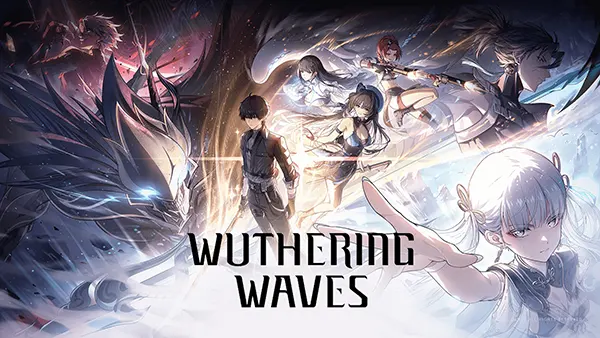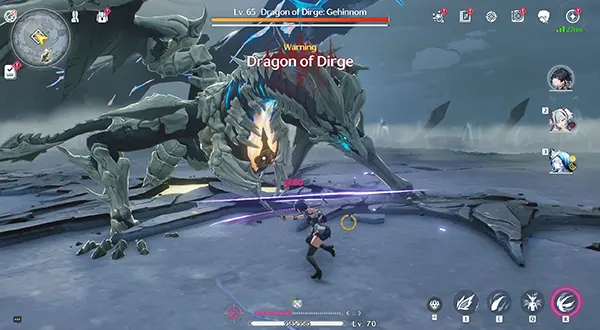“Wuthering Waves” – Is It Truly a Competitor to Genshin Impact on Mobile?

The mobile gaming industry has been transformed by high-budget RPGs offering open-world exploration, deep lore, and anime-styled aesthetics. In this context, “Wuthering Waves” by Kuro Game, released globally in May 2024, has drawn immediate comparisons to “Genshin Impact” by miHoYo. But can this newcomer actually rival the success and influence of one of the biggest titles in mobile RPG history? In this article, we explore the game’s mechanics, development strategy, and player feedback to provide an informed perspective based on current data and expert analysis.
Gameplay and Mechanics
“Wuthering Waves” blends fast-paced combat with open-world traversal mechanics, putting a strong emphasis on fluid character movement and real-time action. Unlike “Genshin Impact,” which uses a turn-based party-switching system, “Wuthering Waves” allows for complex combo chains and evasion timing that resemble more traditional action games. Each character, known as a Resonator, possesses unique skill trees and weapon types, enhancing tactical diversity.
Combat feels more dynamic and less reliant on elemental combos. Instead, players must learn enemy patterns and react precisely. This appeals to gamers seeking more control and less RNG. Traversal is equally central — wall-running, gliding, and double-jumping offer vertical freedom unseen in most mobile games. These elements result in gameplay that feels more kinetic and personal than Genshin’s comparatively passive exploration model.
In terms of controls and responsiveness, feedback from high-end mobile users and PC players is largely positive. However, optimisation for mid-tier devices remains inconsistent, with some players reporting frame drops and delayed animations, especially in high-density battle scenes.
Progression and Monetisation Model
“Wuthering Waves” uses a gacha-based character acquisition system, similar to its competitor. Players collect characters through a currency-based summoning process. However, the drop rates and pity system are slightly more generous, providing a better experience for non-spenders or light spenders. This is a clear strategic move to reduce backlash seen in other gacha titles.
Progression is designed to reward time investment rather than just spending. Daily and weekly tasks, along with open-world objectives, contribute to character growth. The crafting and enhancement systems are deeper than Genshin’s, with more resource categories and upgrade paths, though this can overwhelm new players initially.
It’s also worth noting that Kuro Game has maintained a policy of generous launch rewards and frequent updates since global release. Combined with its narrative chapters being released on schedule, it creates a sense of momentum that keeps the community engaged and hopeful for long-term support.
Art Direction and Storytelling
The artistic direction of “Wuthering Waves” leans into darker post-apocalyptic themes with moody palettes and ambient music. Compared to the vibrant fantasy world of Genshin, this sets a distinctly different emotional tone. The setting, known as Solaris-3, is filled with echoes of a collapsed civilisation, mysterious technologies, and supernatural anomalies.
Characters are designed with more subdued fashion and subtle expressions, appealing to those who find Genshin’s cast overly flamboyant. Voice acting, available in multiple languages, including English, Chinese, and Japanese, is praised for emotional depth and fitting tone. The UI and environment design prioritise immersion, with minimal on-screen clutter during exploration.
The storyline is more fragmented and delivered in pieces, challenging players to piece together the lore themselves. This is a double-edged sword: while some players enjoy theorising and interpreting, others find it disjointed. There’s also an ongoing effort by Kuro Game to expand the lore through manga tie-ins and live events, enhancing the narrative outside the game client itself.
Community Reception and Criticism
As of June 2025, the player community remains active, with Reddit, Discord, and YouTube filled with guides, fan art, and critique videos. Reviews are generally positive, with an average rating of 4.3/5 on Google Play and 4.5/5 on the App Store. Many praise the combat fluidity and world-building.
However, criticism exists. Some players cite repetition in open-world tasks and lack of high-end content post-campaign. Others report that technical bugs have persisted since launch — particularly on Android devices with less than 6GB RAM. While hotfixes and patches are regular, long-term retention may depend on whether Kuro Game can maintain a stable gameplay experience across all supported devices.
There’s also a notable gap in cooperative multiplayer features, something Genshin handles more robustly. Players seeking a social component may find “Wuthering Waves” less fulfilling, at least for now. Developers have acknowledged this and hinted at future updates expanding multiplayer content.

Market Position and Future Prospects
From a business standpoint, “Wuthering Waves” is backed by a growing studio with experience from titles like “Punishing: Gray Raven.” The initial marketing campaign focused on targeted communities rather than mass advertising. This grassroots strategy has fostered a more engaged audience, though it lacks Genshin’s mainstream recognition.
Revenue projections suggest the game generated over $85 million globally within its first six weeks, primarily from Asia and North America. While this is impressive, it remains below Genshin’s benchmark performance, which exceeded $250 million in a similar timeframe. However, given Kuro Game’s smaller scale and more modest investment, this performance is commercially successful and sustainable.
In terms of esports or event-based engagement, there are currently no major partnerships announced. This may change as the player base matures and if the game introduces PvP or challenge-based events. The next few quarters will be crucial in determining its lifespan in a competitive mobile RPG market.
Is It a True Rival?
Comparing “Wuthering Waves” directly to “Genshin Impact” is complex. While they share genres and systems, the tone, gameplay, and progression philosophy differ significantly. Genshin prioritises accessibility, visual splendour, and narrative immersion. “Wuthering Waves” focuses on gameplay challenge, vertical movement, and fragmented lore.
For players looking for a more reactive combat system and darker thematic direction, “Wuthering Waves” absolutely delivers. It’s not a direct replacement but a viable alternative that stands on its own strengths. The developer’s responsiveness to community feedback also bodes well for future development.
In conclusion, while “Wuthering Waves” may not unseat “Genshin Impact” in global popularity, it has carved out a respected position in the genre. Its growth trajectory, community involvement, and evolving gameplay make it one of the most promising entries in mobile RPGs for 2025.
